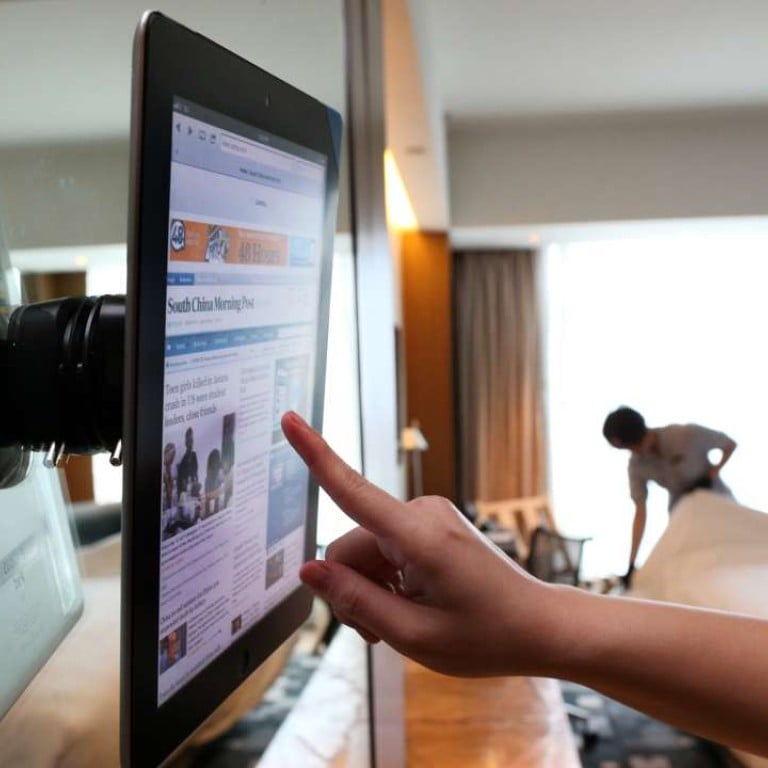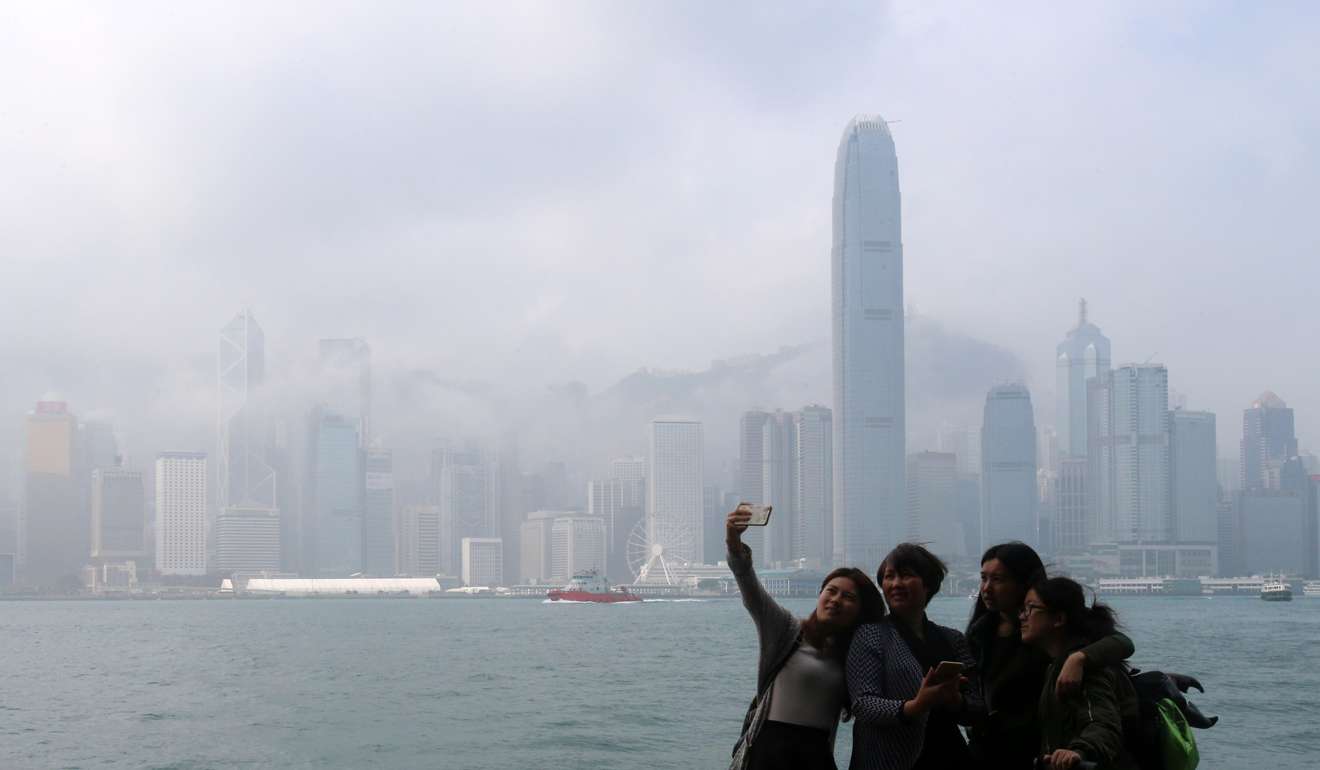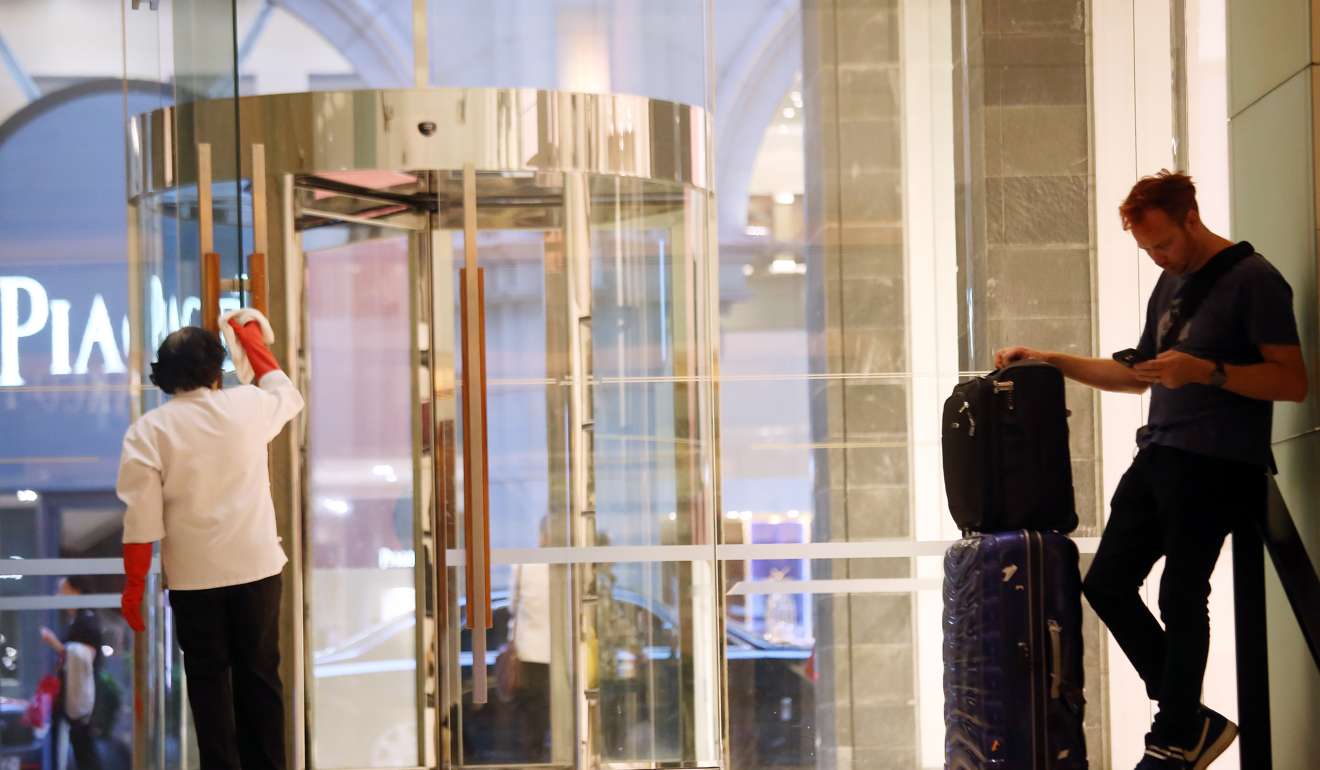
How Hong Kong tourism industry hopes to personalise travel experiences by using big data
With mainland tourist numbers declining over the past year and more people booking online, travel firms are looking at new strategies to entice and keep customers
Do not be surprised if the next time you walk into a hotel room, you find it has everything you want – the amenities that fit your taste, a set-up in your style and your favourite food and drink – without you even asking for it.
International hotel chain Marriott International is already in the midst of using large volumes of data collected from consumers to offer a bespoke hotel experience.
“Through data analytics, we can provide customers with more efficient ways to search and book our hotels because we understand their needs and interests,” Jun Lu, senior director of customer experience at Marriott International told the Post.
“We aspire to personalise the travel experience by appealing to their taste through food and beverage offerings and the room set-up, down to details such as welcome amenities.”

Big data is the term used for large volumes of digital information collected from various sources such as smartphone apps, internet browsing and purchasing history, and financial transactions. The data is then analysed to identify trends and specific tastes to tailor products or services for customers.
This is crucial to its survival as people in the modern age are increasingly doing transactions online, such as searching, planning and booking holidays.
Travel agencies with physical shops in Hong Kong are becoming increasingly irrelevant with the rise of websites and smartphone apps which provide the same functions.
As travellers increasingly go online to find and compare the best travel experience for the best value, they accumulate a large amount of digital data. Multiply that data by millions and you have the cumulative experiences of all those travellers.

The “holy grail” of big data analytics in the travel industry is personalisation – giving each traveller his or her own unique experience. The one-size fits all model no longer applies in modern travel.
We’re never going to get absolutely everything bespoke for each individual, but giving people the choice is what it’s about
“It’s a lot harder because everyone is so different and their moods can change ... We’re never going to get absolutely everything bespoke for each individual, but giving people the choice and changing with them, allowing to track that change and then change as they change is what it’s about,” Seton Vermaak, head of strategy at digital consulting firm SapientRazorfish, told the Post.
Using data that tracks behaviour patterns over a period of time to predict what a customer probably wants on their next trip, and offering them that choice before they even look for it, is a way of utilising information from big data.
But big data industry experts said Hong Kong was simply jumping on the bandwagon as regional rivals were ahead of the game.
“In terms of technology, Hong Kong is usually a little bit behind Singapore, Japan and other countries,” Kitee Fu, IT commerce division manager at recruitment consultant Robert Walters, said.
Most big data analytics resources are being poured in to the finance sector in Hong Kong causing a talent shortage, she added.
But momentum to use big data to modernise and advance Hong Kong’s tourism industry is gaining.
“You’ve got huge momentum with travel and hospitality trying to really reinvigorate customer loyalty,” PricewaterhouseCoopers emerging technologies leader Scott Likens said.

“Maybe not by attracting more [tourists] because that’s a harder longer play, but to serve better and to get more out of customers they have through loyalty – all of that relies on having big data.”
“Our challenge is that it’s quite a diverse market, you have a lot of transient customers ... so really kind of getting your head around what you need to do with that data to make it valuable is the challenge.”
However, up until a few years ago, companies did not see the data as valuable or necessary enough to collect and store.
“When I got to Asia three years ago I thought I was coming to the land of data, because you just think millions of people means heaps and stacks of data,” Vermaak said.
“But the reality was when I asked ‘give me your data’ everyone was like ‘we don’t have data’.”
The unwillingness to hand over or the unavailability of data was partly due to Hong Kong riding high on the backs of millions of mainland tourists coming to the city since the individual travel scheme was implemented in 2003.
This changed in the last two years as the number of visitors from across the border and retail sales plunged.
“People have choice now, they have high expectations ... There is no need for them to accept ‘whatever’s on the shelf’,” he said.
This has pushed companies to rethink the way they cater to their customers’ needs in order to earn their loyalty, and where the customer is in control – not the company providing the goods and services.

